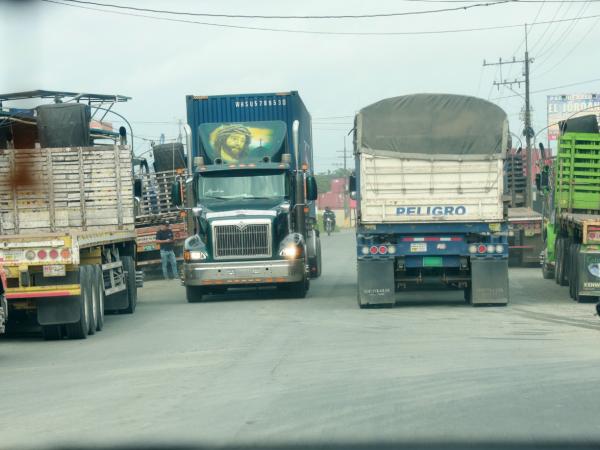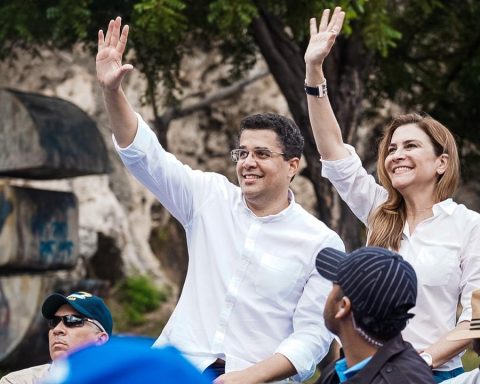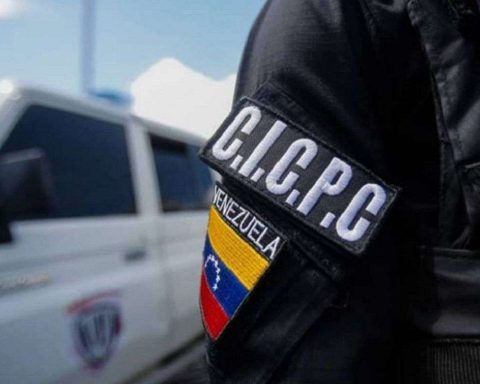In the National Development Plan, the Government set clear goals to be achieved during the years of its mandate. In the case of the transport and logistics sector, some of them point not only to the improvement of infrastructure, but also to environmental components and cost efficiency. Despite being halfway through the four-year term, Experts say that progress is limited.
You may be interested in: CCI welcomes possible increase in tolls from August
For example, the document indicates that, in four years of Government, the percentage of logistics costs would be reduced on sales by 10.1 percentage points, from 12.6% in 2020 to 11.5% by 2026. According to Sinergia 2.0, the National Planning Department’s measurement portal (DNP), to date the process of contracting an external firm to update, apply and analyze the National Logistics Survey (ENL) was started, in order to measure the country’s logistics performance during the year 2023 by DNP and the Ministry of Transportation. However, to date there is no record further decrease in percentage.
The prioritization and implementation of essential air service routes in operation was also established. In accordance with the progress and incorporation of more routes by Satena, especially in deep Colombia, to date, over 100, The indicator progress is 39.5%. Currently, 50 routes have been added to its portfolio.
On the other hand, the Ministry of Transport set out to reduce road deaths. Basically, in four years, deaths from accidents on Colombian roads would drop by 23%, going from 7,238 in 2021 to 5,723 in 2026. According to the DNP tool, This indicator is at 7.25%, still well below of the goal for 2026, since in 2023 more than 8,000 people died on the roads, contrary to what the Government wanted.
Despite the numerical results, the National Road Safety Agency carried out activities for the implementation of public policy on road safety and care for victims, reaching departments such as Valle del Cauca, Sucre, Caquetá, Cesar and Magdalena, in which they prioritized the institutional offer of local mobility plans, public policy workshops, strengthening of local road safety regulations and a first responder workshop with emphasis on the PAS protocol (Protect, Notify and Assist) which is precisely to secure the area so that emergencies can reach the scene of the accident as quickly as possible.
You may be interested in: ISA Roads has its sights set on three 5G highway projects in Colombia: what are they?
Ground transportation
Courtesy of Jaime Moreno
In environmental matters, another of the Government’s objectives is reach 2.14 million tons of CO2 mitigated by the transport sector, that is, two million more than in 2021. In this regard, Sinergia reviewed the delivery of product two of Retrofit’s consultancy, on the analysis of the international panorama.
This document identified the lack of information on the follow-up to the river mode goal, due to the delay in the delivery of information by the shipping companies. Additionally, they made progress in the Modernization Program, in which they dismantled 332 vehicles and renewed 53 heavy-duty vehicles. In electric mobility, they introduced 781 electric vehicles. In the case of the La Dorada-Chiriguana Train, 1,403 tons of cargo were transported. “These activities contribute to improving the energy efficiency of the sector, reducing or changing the use of energy and therefore contributing to the reduction of emissions,” they say.
Regarding progress, the different unions have said that the level is lower than expected. Even Miguel Ángel Espinosa Alfonso, executive president of Fitac, a union in the logistics sector, mentioned that “The first two years of Gustavo Petro’s government have shown little progress in the implementation of the National Development Plan 2022-2026, and there are still significant challenges to overcome.”
“Low budget execution in several ministries has been a persistent problem. Increasing efficiency in the use of allocated resources is crucial for public policies to have the desired impact. Improvement in administrative and management processes is necessary to ensure that funds are used effectively and waste is avoided. Implementing more robust monitoring and evaluation systems can help identify and resolve budget execution problems in a timely manner,” recommends.
You may be interested in: Prepare your wallet: tolls will rise again this Thursday by 4.64%

The objective is to promote rail transport.
Other pending tasks
While the freight transport sector highlights the work of nearly two years, among others in the revision of the price of diesel, which has supported the costs of transporters to a certain extent and they ask for priority in security issues, which has left them with losses of more than $5 billion, reduce informality and speed up the fleet modernization process.
“One of the main challenges for the new Minister will be to reduce the high levels of informality in the sector, where we have insisted that 100% of transport companies must report information to the National Register of Cargo Dispatch (RNDC). Today, the evasion rate is 49%. Likewise, she must ensure compliance with SICE-TAC for all actors in the logistics chain, as determined by the regulations governing the sector.”explains Nidia Hernández, president of Colfecar.
Regarding mobility applications, José Daniel López, director of Alianza In, a sector association, says that the great challenge in this area will be regulation, “which are legal as are the services they mediate, but which require specific regulation and the national government is the most called upon to promote it within the Congress of the Republic”.
You may be interested in: Final specifications for the key La Dorada – Chiriguaná railway corridor published
“In this field, President Santos did not make any progress, President Duque did not make any progress, and President Petro has not made any progress, so we can certainly say that the main issue is in this matter, which leads to more than 100,000 families who generate income through mobility applications going out to work every day with the uncertainty and anguish of being fined or seeing their vehicle immobilized,” he concluded.
Paula Galeano Balaguera
Portfolio Journalist


















